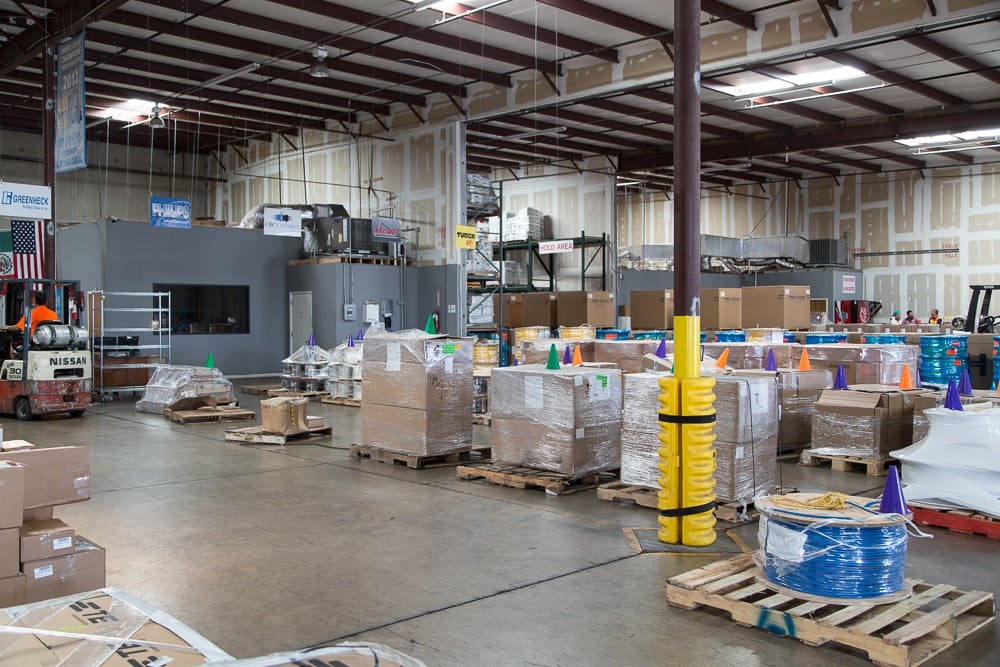Outsourcing and offshoring are terms too often used interchangeably by companies and critics of cost-effective approaches to production. The truth is that there are several key differences between outsourcing and offshoring production. By understanding the benefits of each approach, what to look out for, and where to find support, companies can make more informed decisions on moving forward to the most significant benefit.
Manufacturing in Mexico has emerged as a strategic choice for companies seeking to optimize their production processes while maintaining cost-efficiency and competitive advantage. With its proximity to the United States, favorable trade agreements, and well-established industrial infrastructure, Mexico offers a compelling destination for offshoring and nearshoring initiatives.
Companies leveraging manufacturing in Mexico benefit from access to a skilled labor force, modern industrial parks, and specialized services such as shelter providers that streamline the establishment and operation of production facilities. This strategic approach not only allows businesses to reduce operational costs but also enhances flexibility in responding to market demands and scaling production capacities.
As a result, manufacturing in Mexico continues to attract a diverse range of industries, from automotive and aerospace to electronics and consumer goods, seeking to capitalize on the country's strategic advantages and drive sustainable growth.
What is the difference between offshore manufacturing and outsourcing?
Here are the key differences between offshoring and outsourcing, which companies should be aware of:
- Offshoring: Offshoring refers to the process of moving production to another country, different from the location of your corporate headquarters. This is typically done to benefit from cost advantages due to lower-cost labor, real estate, and other factors. Some offshoring companies blend offshore and onshore approaches for greater stability in bringing a product to market.
- Outsourcing: Outsourcing production means contracting specific work to a third-party This is also sometimes referred to as contract manufacturing.
- Offshore outsourcing: Offshore outsourcing means contracting a third-party company in another country to perform work in order to benefit from cost advantages. The prevalence of this practice is the reason many people conflate outsourcing with offshoring.
We would add to this list another definition that is slowly becoming better known: nearshoring. Nearshoring is the practice of offshoring production to a lower-cost country located near your corporate headquarters or customer base to benefit from production and shipping cost advantages. A nearshoring approach is increasingly seen as a strategy for providing greater stability for many companies as it can provide lower production costs while reducing the risk inherent to shipping goods across the globe.
Outsourcing and offshoring benefits
Outsourcing your manufacturing allows companies to focus on administrative and business processes while allowing a competent third-party to focus exclusively on their core function, whether that be manufacturing or another service. The challenge with this approach is that the outsourced company is responsible for product quality. While companies can and should audit companies before outsourcing, this can be challenging when offshore outsourcing to a country across the globe.
Offshoring’s primary benefit is often seen as providing access to lower-cost labor and real estate. This can significantly support small companies looking to scale up. However, offshoring offers much more than lower costs alone. Many offshoring companies today find that this approach provides them access to labor in areas that are not hampered by skilled labor shortages. In some cases, offshoring also includes access to dense networks of suppliers. Offshoring allows companies to maintain complete control over all production processes.
The challenge with offshoring often tends to be the need to learn how to navigate expectations, norms, and regulatory requirements in a new country. This is an area where many companies tend to partner with an expert in doing business in their target offshore country.
How to offshore manufacturing to Mexico?
Offshoring production is an excellent strategy for cost-effectively bringing a new product to market. There are several typical ways offshoring companies can enter another country. Examples of offshoring strategies in Mexico include:
- Launching a corporate subsidiary. This model allows an organization to maintain complete control of processes from hiring through operations.
- Acquisition of company. A foreign company can merge with or acquire a local manufacturer, benefiting from rapid access to labor, real estate, and other assets. It can dramatically shorten the learning curve for operating in a new country but may carry with it different management practices.
- Joint venture. This model allows a foreign company to partner with a local company, allowing both to expand their network by leveraging their respective strengths and creating a mutually beneficial partnership. This approach may be more common in some markets than in others.
- Partnership with a shelter service provider. This model originated in Mexico as a strategy for encouraging foreign investors to launch operations in the country. Under this model, the foreign company controls all production assets, engineering and production processes, quality control, and supply chain processes. However, the shelter company operates in Mexico as the legal entity of record, responsible for compliance and working with local service providers.
For a more detailed explanation of these options within the context of manufacturing in Mexico, watch this webinar about modes of entry for expanding into Mexico:
Companies of all sizes can benefit from offshoring. Successful examples of offshoring companies in Mexico alone include global giants such as Ford Motor Co.; NAI Group, a global provider of connectivity solutions for the industrial technology, medical, telecom, and data industries; and aircraft manufacturers Bombardier and Safran, among countless others. Smaller companies also benefit from this approach. Companies like Wire Harness Solutions find expanding offshore can fill labor needs while responding to heightened customer demand.
To learn how you can position your company for success through offshoring to Mexico, contact Tetakawi.
Subscribe
Sign up and stay informed with tips, updates, and best practices for manufacturing in Mexico.






